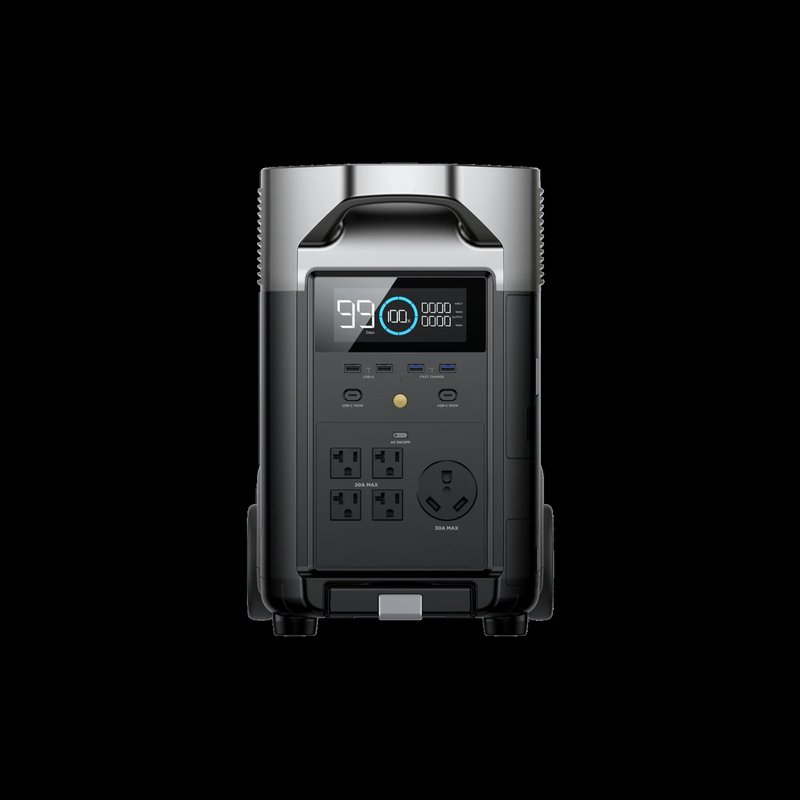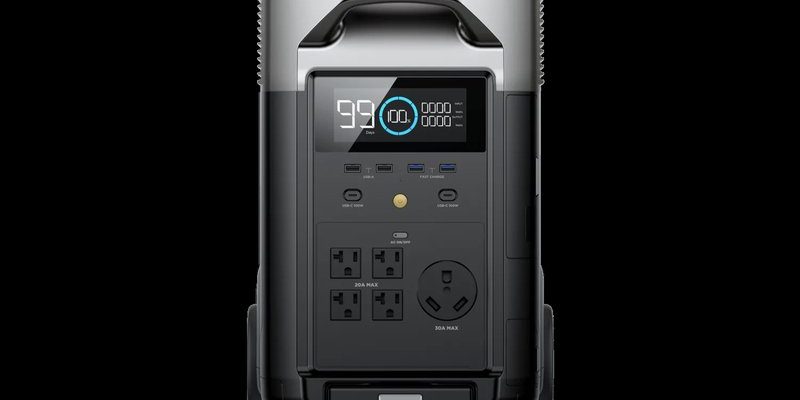
From generators to battery backups, there are various ways to ensure you’re not left in the dark—literally. In this article, we’ll explore the top backup power solutions available for homes in your area and help you understand their pros and cons. By the end, you’ll have a clearer idea of what might work best for you and your family’s needs.
Understanding Different Types of Backup Power Solutions
Backup power solutions come in various forms, and understanding these options is the first step in making an informed choice. The primary types include portable generators, home standby generators, and battery backup systems. Each serves a unique purpose and has its advantages.
1. Portable Generators: These are like the trusty Swiss Army knife of power solutions. They can provide power wherever you need it, whether for a camping trip or in your garage during an outage. Portable generators run on gasoline or propane and can power essential appliances, lights, and, in some cases, even your refrigerator. However, you’ll need to keep fuel on hand and ensure proper ventilation when using them indoors.
2. Home Standby Generators: Think of these as your home’s personal bodyguard against power outages. They sit outside your home and automatically kick in when the power goes out. Usually powered by natural gas or propane, home standby generators can keep your whole house running seamlessly until the main power returns. Keep in mind that they require professional installation and a higher initial investment, but they offer peace of mind.
3. Battery Backup Systems: If you want something quieter and cleaner, battery backup systems might be your answer. They don’t produce emissions and can be charged from your home’s electrical system, solar panels, or even from the grid. Battery systems can power critical devices, like medical equipment or security systems, for several hours or even days, depending on the capacity. They’re like the silent heroes of backup power solutions.
Portable Generators: Pros and Cons
Let’s dive deeper into portable generators, which are very popular among homeowners.
Pros:
– Affordability: Generally, portable generators are less expensive than standby generators. You can find reliable options for a few hundred dollars.
– Flexibility: They can be used for various purposes—not just during power outages. Whether you’re tailgating or working on outdoor projects, they’re versatile tools.
– Easy to Store: Since they’re compact, you can store them away when not in use, saving space.
Cons:
– Manual Setup: You’ll need to pull them out and set them up when the power goes out, which can be inconvenient during emergencies.
– Noise Levels: They can be pretty loud, which might be bothersome if you’re in a quiet neighborhood.
– Fuel Dependency: Having to keep fuel on hand can be a hassle, especially during long outages when fuel might be scarce.
Home Standby Generators: The Gold Standard
If you want a set-it-and-forget-it solution, home standby generators might be the answer you’re looking for. Here’s what to consider:
Pros:
– Automatic Switching: Once installed, they automatically kick in during outages, ensuring your home remains powered without any intervention.
– High Power Output: They can usually power your entire home, which means no compromise. Peace of mind is priceless, especially during severe storms.
– Long-term Investment: Since they’re durable and reliable, a standby generator can last for years, making it a good investment for your home.
Cons:
– Higher Initial Cost: The installation and purchase cost can be significant—often ranging from $5,000 to $15,000 depending on the size and model.
– Space Requirements: These generators take up more space and must be installed outdoors, which might require some planning.
– Regular Maintenance: To keep them in top shape, they need periodic maintenance, which can add to the overall cost.
Battery Backup Systems: Silent and Clean
As the world moves towards more sustainable energy, battery backup systems have gained popularity. Let’s explore why they might be right for your home.
Pros:
– Environmentally Friendly: These systems produce no emissions, making them a cleaner choice. If you’re eco-conscious, this is a big plus.
– Ease of Use: Once set up, they automatically supply power without any noise or fuss—you won’t even know when the power goes out.
– Solar Compatibility: Many battery systems can work with solar panels, allowing you to harness renewable energy.
Cons:
– Limited Power Duration: Depending on the capacity, they might only power essential items for a limited time. You’ll need to know what you can compromise on.
– Initial Costs: Although they can save you money over time, the initial setup can be pricey, especially if you’re pairing it with solar panels.
– Capacity Limitations: It’s important to carefully calculate your needs. Overloading your battery system can lead to outages or damage.
How to Choose the Right Backup Power Solution for Your Home
Now that you have a better understanding of different types of backup power solutions, how do you choose the right one for your home in zip code 29401? Here are a few essential factors to consider:
1. Power Needs: Start by listing what you absolutely need to keep running during an outage. Are you looking to run just the fridge and some lights, or do you need to power your home’s heating and cooling systems? Calculating your wattage requirements will guide your decision.
2. Budget: Honestly, this is a biggie. Decide how much you’re willing to invest in a backup power solution. Portable generators are easier on the wallet, while standby generators and battery systems might require a more significant upfront expense.
3. Installation and Maintenance: If you’re not handy, a professionally installed home standby generator may be your best bet, but it requires ongoing maintenance. Conversely, portable generators are often user-friendly and require less commitment.
4. Space and Aesthetics: Consider where you’ll place your generator. Standby generators need outdoor space, while portable ones can be stored away. Choose a location that doesn’t disrupt your living space.
Installation and Maintenance Tips for Backup Power Solutions
Once you’ve chosen your backup power solution, proper installation and maintenance will ensure it works when you need it most.
– Professional Installation: For home standby generators, hire a licensed technician to install it. They’ll ensure it adheres to local codes and is safely positioned.
– Regular Testing: Make it a habit to test your generator regularly, especially if it’s a standby model. Run a test cycle to confirm everything is functioning correctly.
– Fuel Storage: If you have a portable generator, store fuel safely in approved containers. Keep it in a cool, dry place, away from any heat sources.
– Battery Care: For battery systems, monitor the charge levels frequently and follow the manufacturer’s instructions for maintenance.
Final Thoughts on Backup Power Solutions
Having a reliable backup power solution is not just a luxury; it’s a necessity for peace of mind, especially in areas prone to outages like zip code 29401. Whether you choose a portable generator, a home standby generator, or a battery backup system, the key is understanding your needs and making an informed decision.
Ultimately, investing in the right backup power solution means empowering yourself against the unpredictable nature of power outages. The comfort of knowing you’re prepared can be worth its weight in sanity. So, take your time, weigh your options, and choose the solution that fits your lifestyle best. After all, you deserve to keep the lights on—no matter what!
